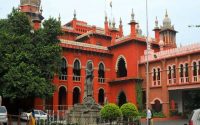$100 Website Offer
Get your personal website + domain for just $100.
Limited Time Offer!
Claim Your Website Now10 Facts On The Corruption Case Against VK Sasikala
Source:- ndtv.com
New Delhi: The pending disproportionate assets case that poses a legal hurdle against VK Sasikala’s taking over as the Tamil Nadu Chief Minister, dates back to 1996. J Jayalalithaa, Ms Sasikala and her two relatives, Ilavarasi and Sudhagaran, had been convicted in the case that alleged that the former Chief Minister owned assets far exceeding her known sources of income. After they were acquitted in 2015, an appeal was filed in the Supreme Court, the verdict of which is likely to be delivered today. Since Ms Jayalalithaa died in December, the court won’t pass orders against her. Its verdict will involve Ms Sasikala and her relatives.
Here are the 10 facts in this story:
- Ms Jayalalithaa had been accused of amassing wealth to the tune of Rs. 66 crore disproportionate to her known sources of income during the period between 1991 and 1996, when she held the post of the Chief Minister of Tamil Nadu for the first time.
- Ms Sasikala, who was her long-time live-in aide, was accused of abetment and criminal conspiracy in the matter. The charges against her relatives were Ilavarasi and VN Sudhagaran.
- The trial had been shifted from Tamil Nadu to Karnataka following concerns about undue influence, since Ms Jayalalithaa was still the Chief Minister. In September 2014, all four were sentenced to a 4-year-jail term and a fine of Rs. 100 crore by a special court in Bengaluru.
- In May 2015, the Karnataka High reversed the verdict and acquitted them all. The court had held that the charges against them was not sustainable. After the special court verdict, Ms Jayalalithaa had stepped down as Chief Minister. The High Court’s verdict cleared the decks for her return as the Chief Minister.
- Soon after, the Karnataka government, DMK leader K Anbazhagan and BJP’s Subramanian Swamy had challenged their acquittal in the Supreme Court.
- The Karnataka government had argued that if the judgment of the high court was not set aside, the Prevention of Corruption Act will fail to stop corruption among politicians and public servants and that will send a wrong signal.
- The state had also said that there were mathematical errors in calculating the assets by the High Court, which acquitted Ms Jayalalithaa and Ms Sasikala.
- In her response, Ms Jayalalithaa had claimed that there was no “mathematical error”. She said all her income between 1991 and 1996 were through lawful sources.
- After hearing the arguments till June, the Supreme Court had reserved its verdict.
- If the Supreme Court upholds the order of the High Court, acquitting Ms Sasikala, there will be no legal hurdles to her becoming the Chief Minister of Tamil Nadu. If convicted, she would not be able to stand for elections for 6 years and hold public office.



